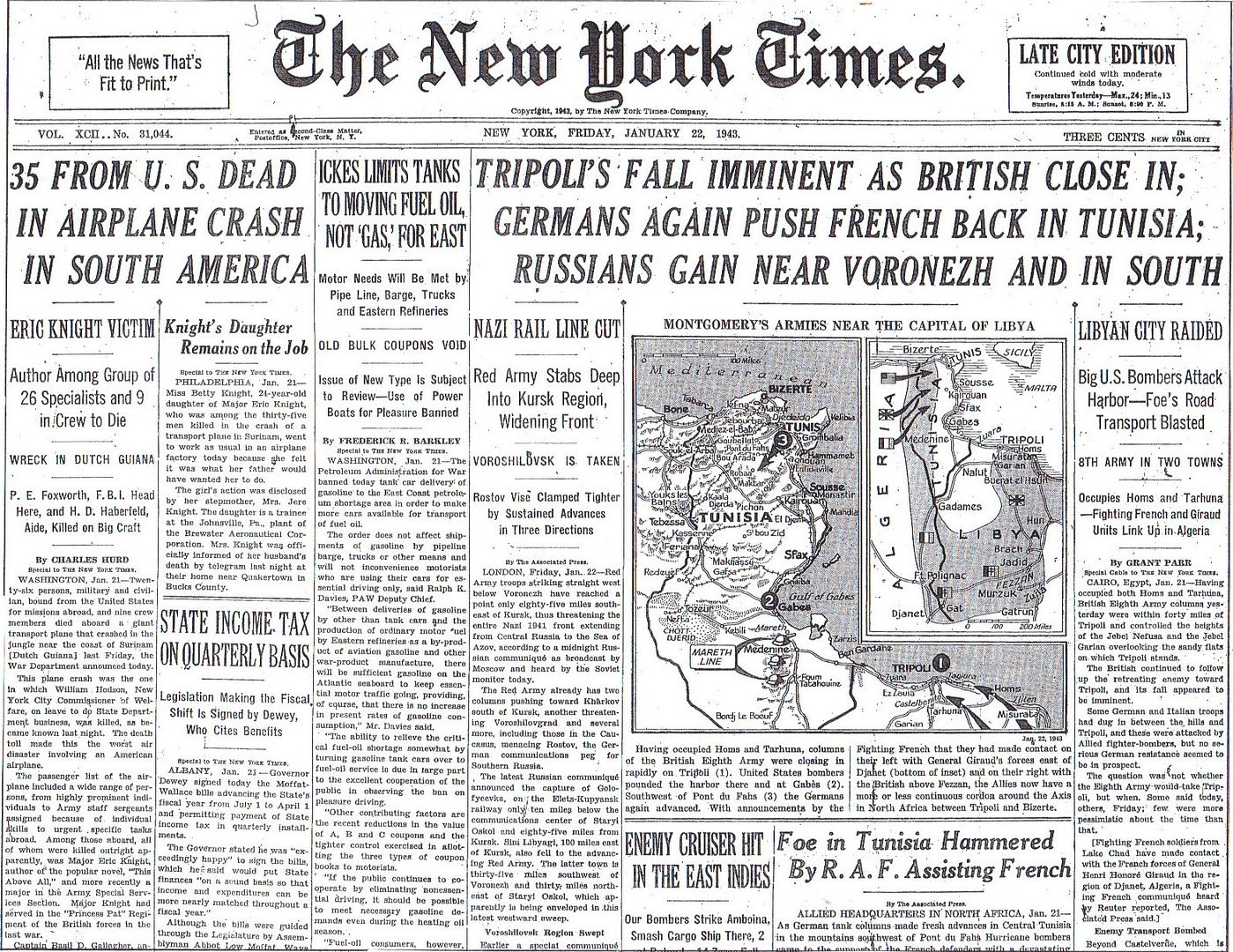
Posted on 01/22/2013 4:25:40 AM PST by Homer_J_Simpson

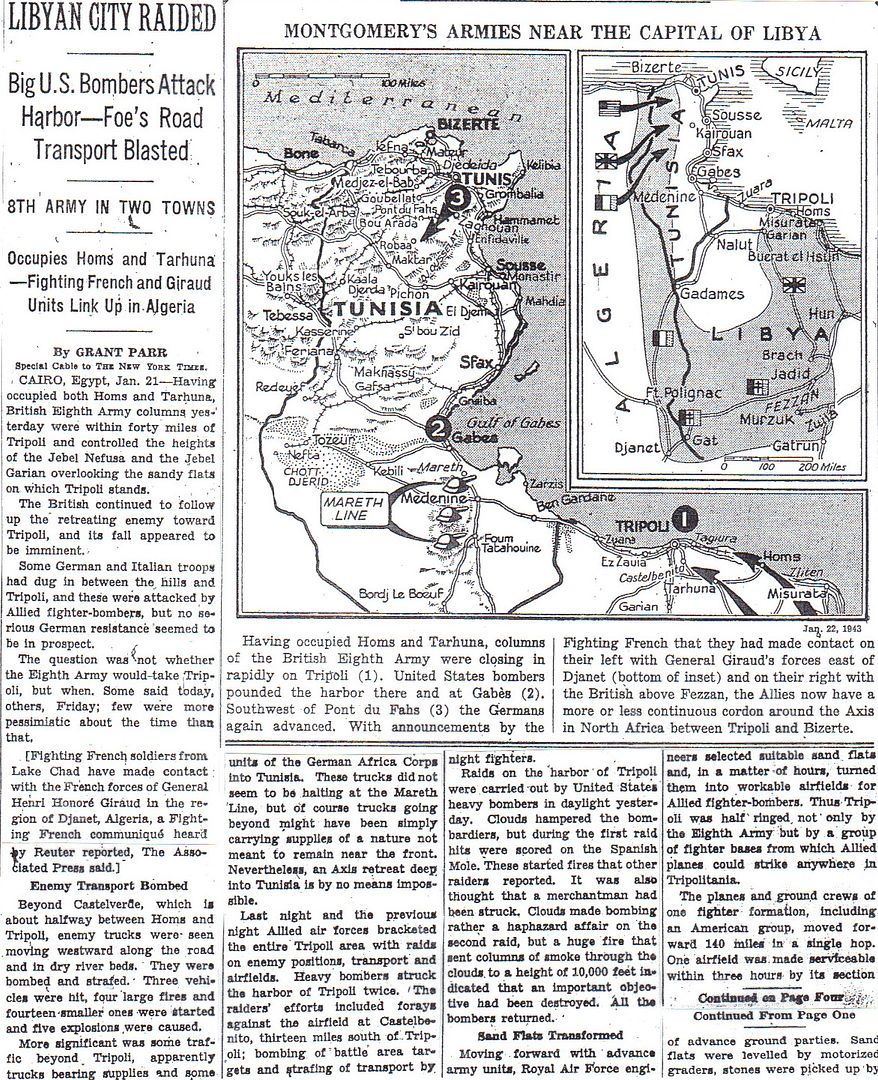
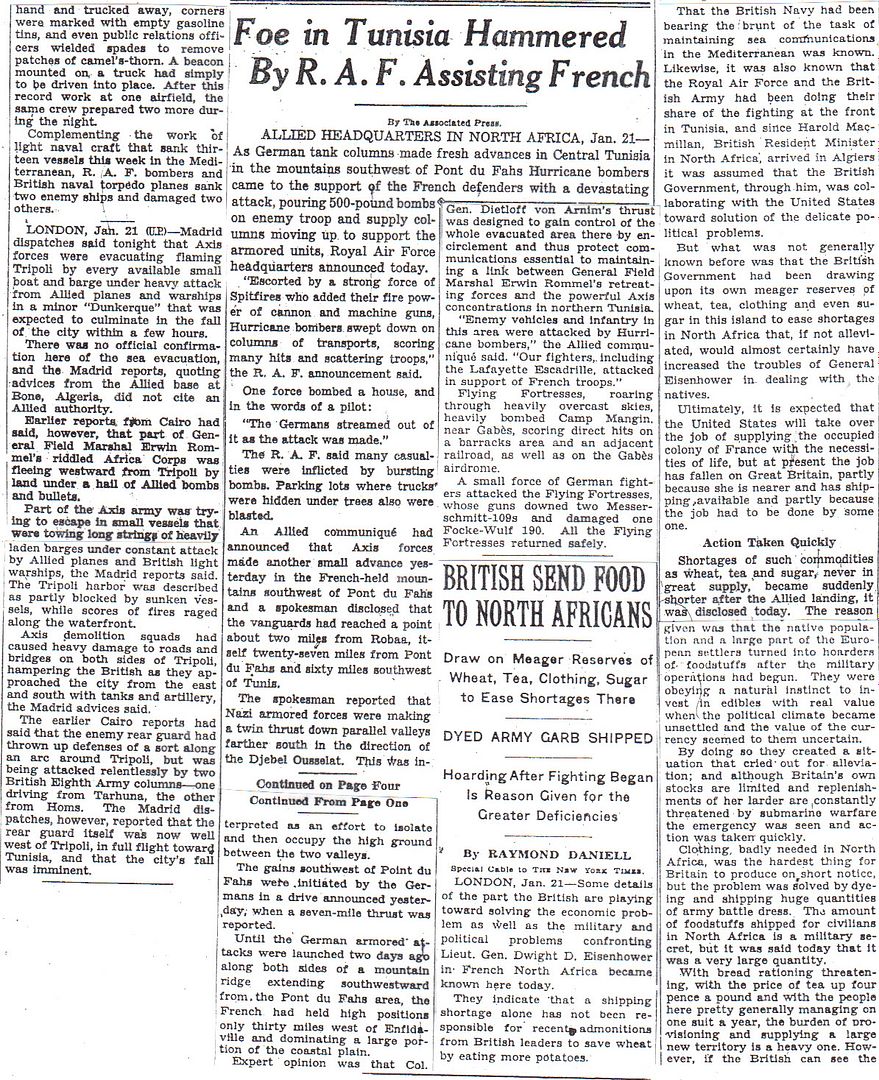
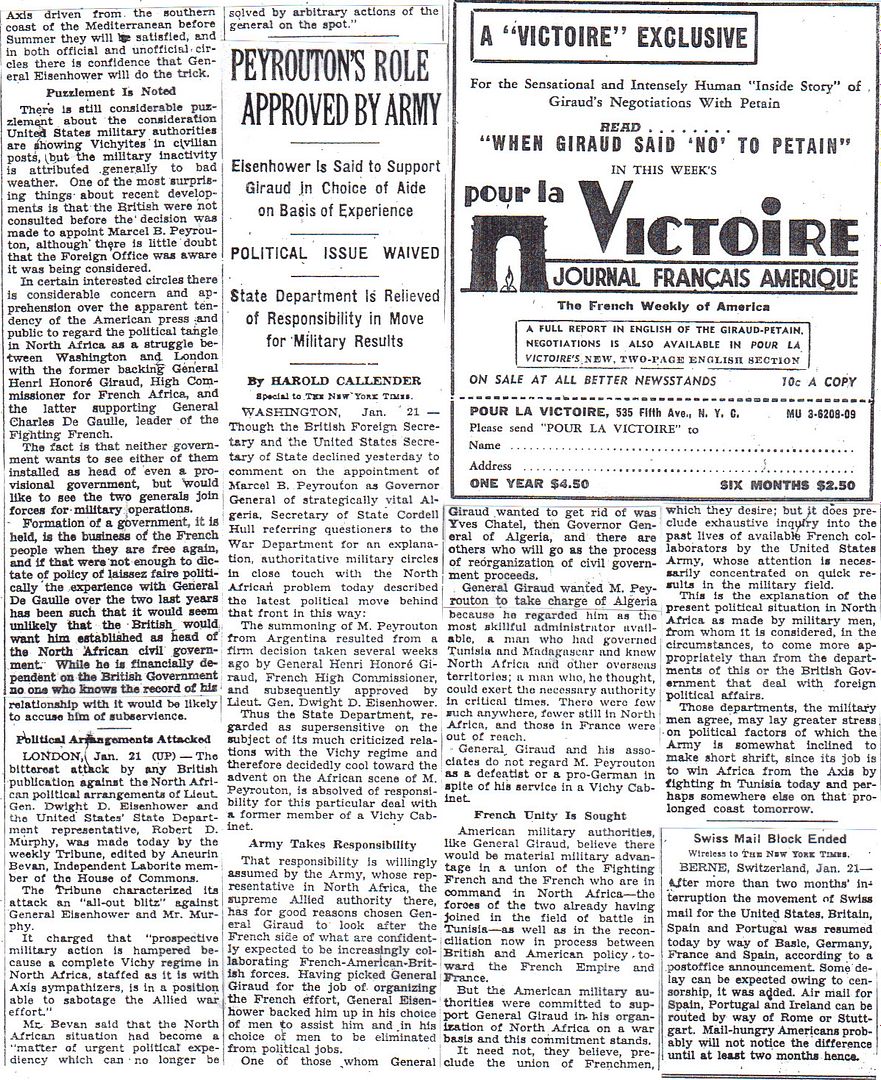
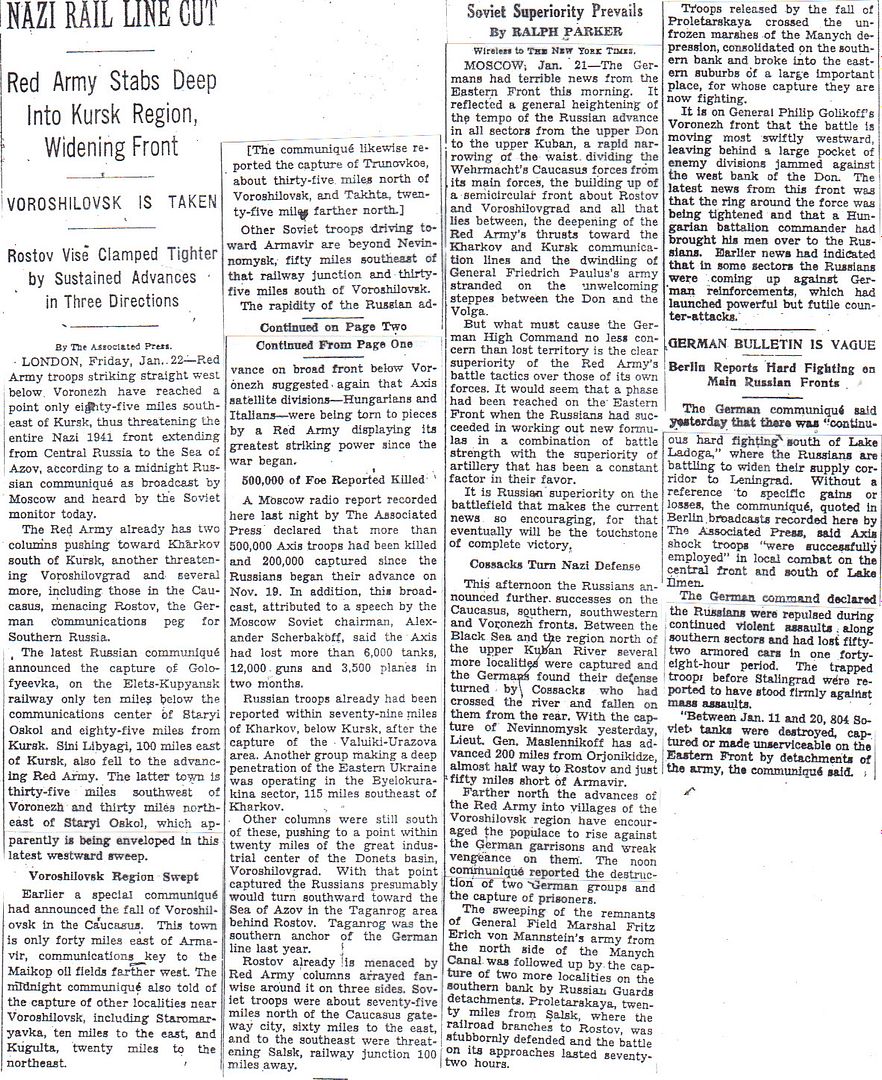
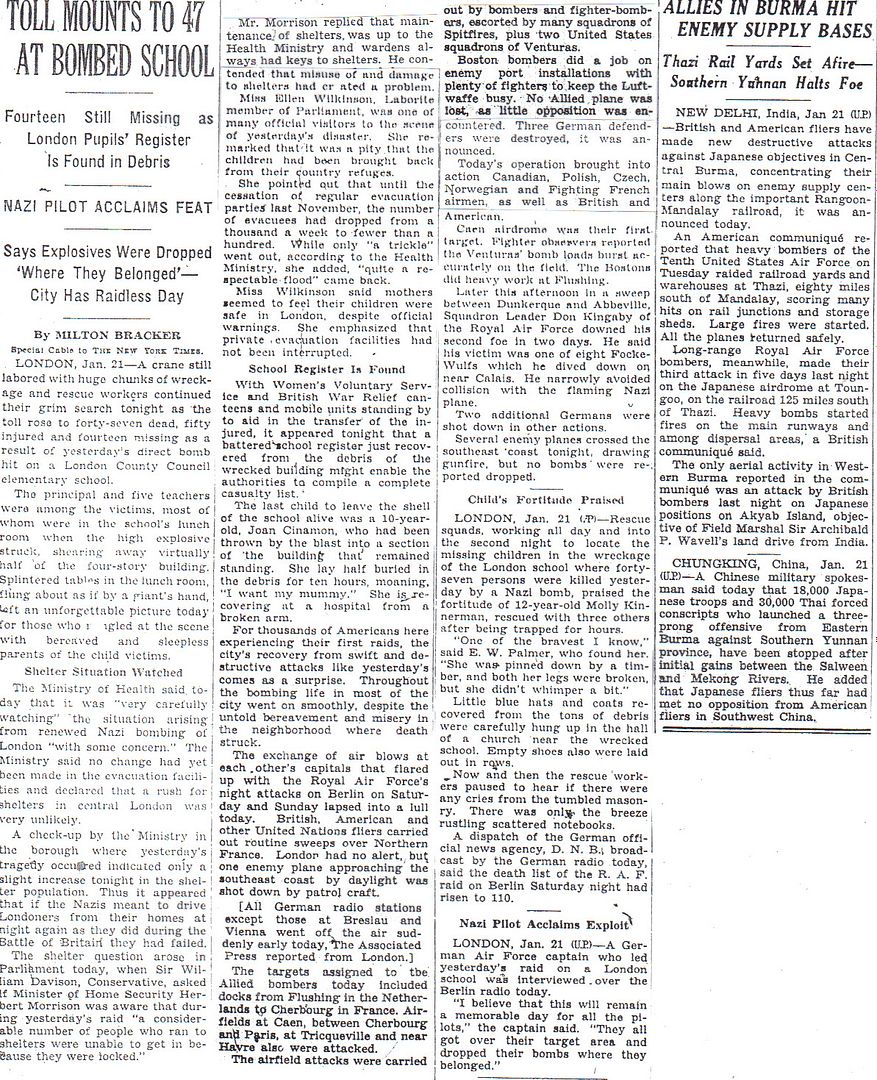
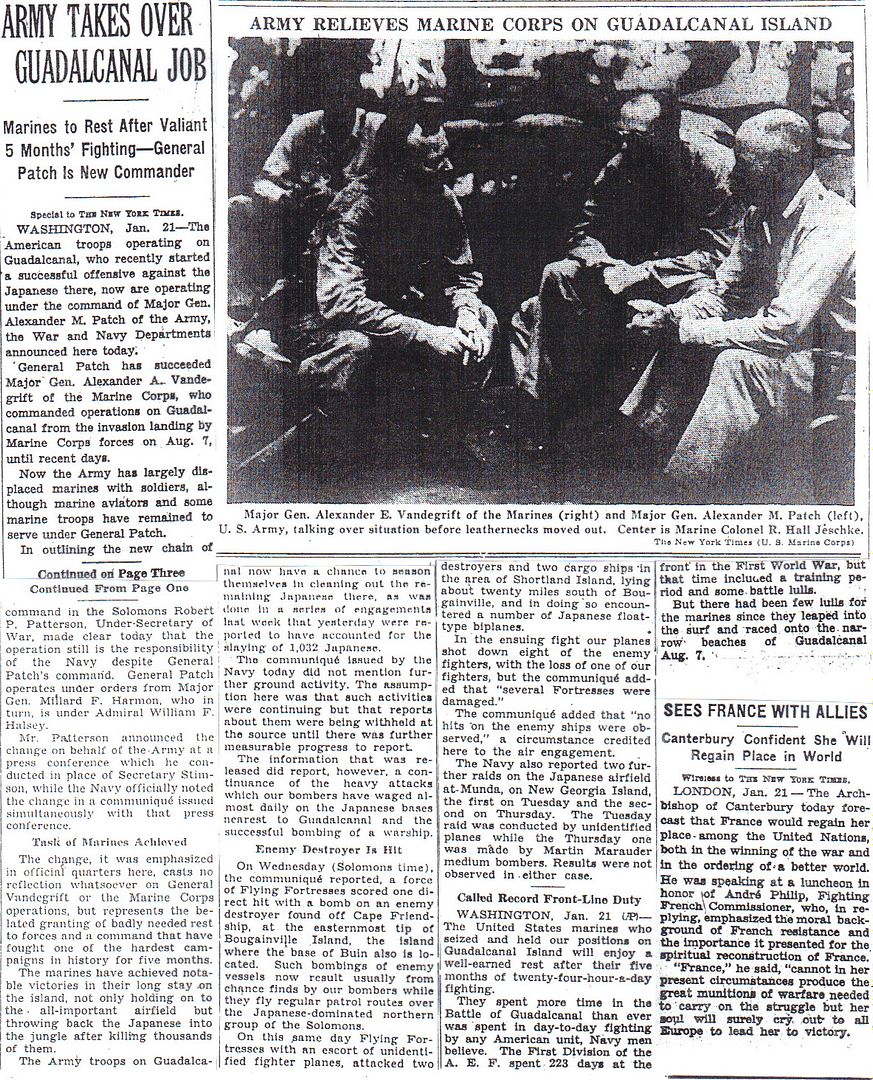
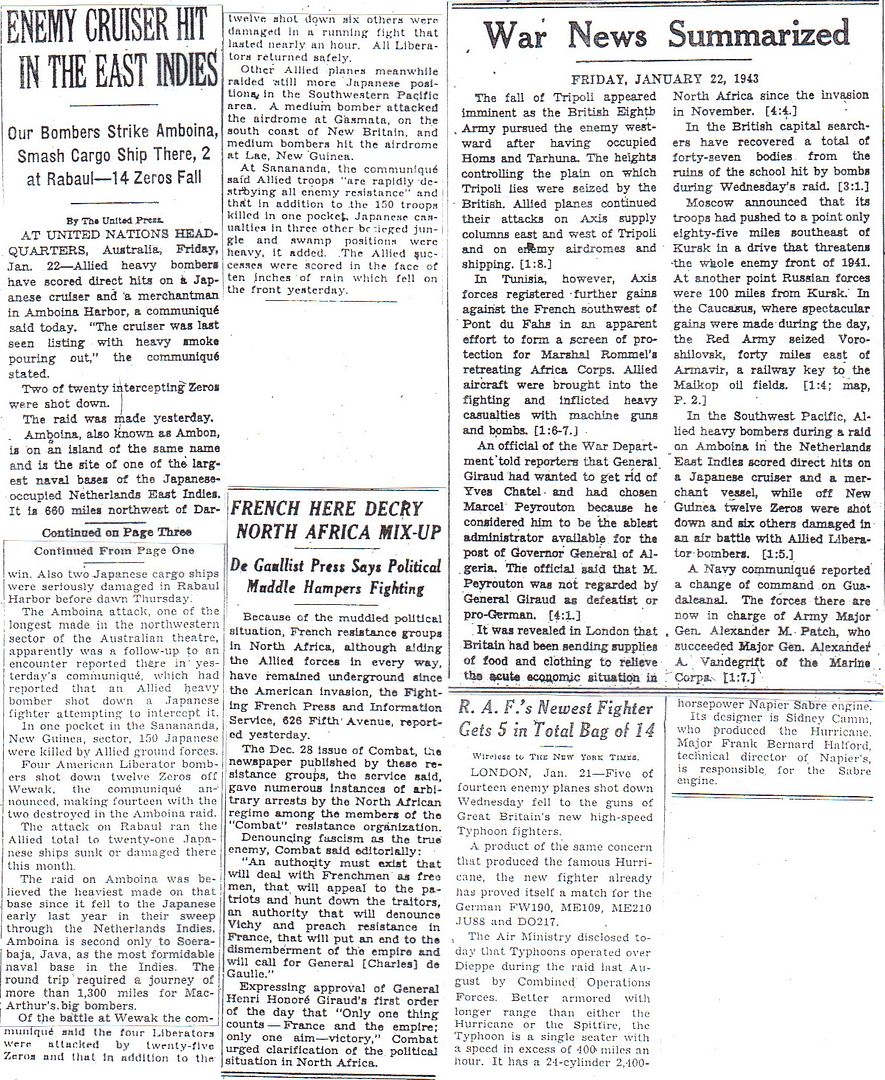
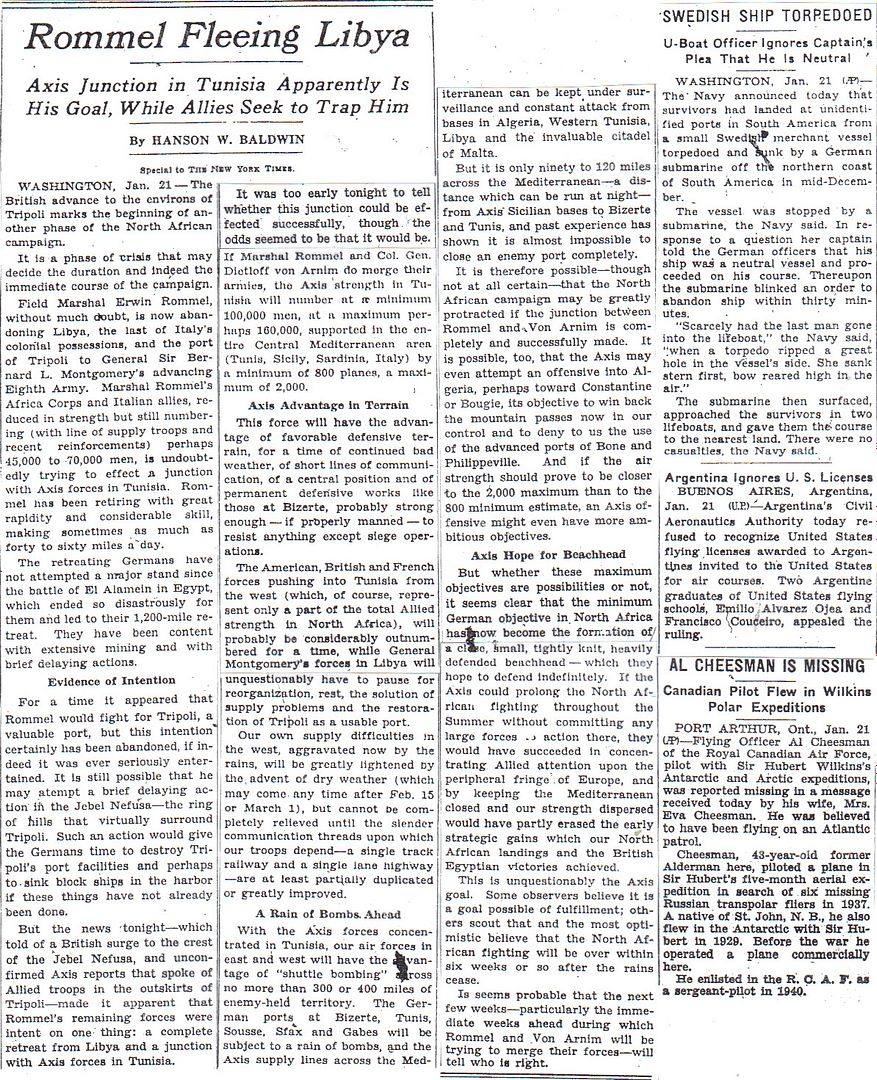
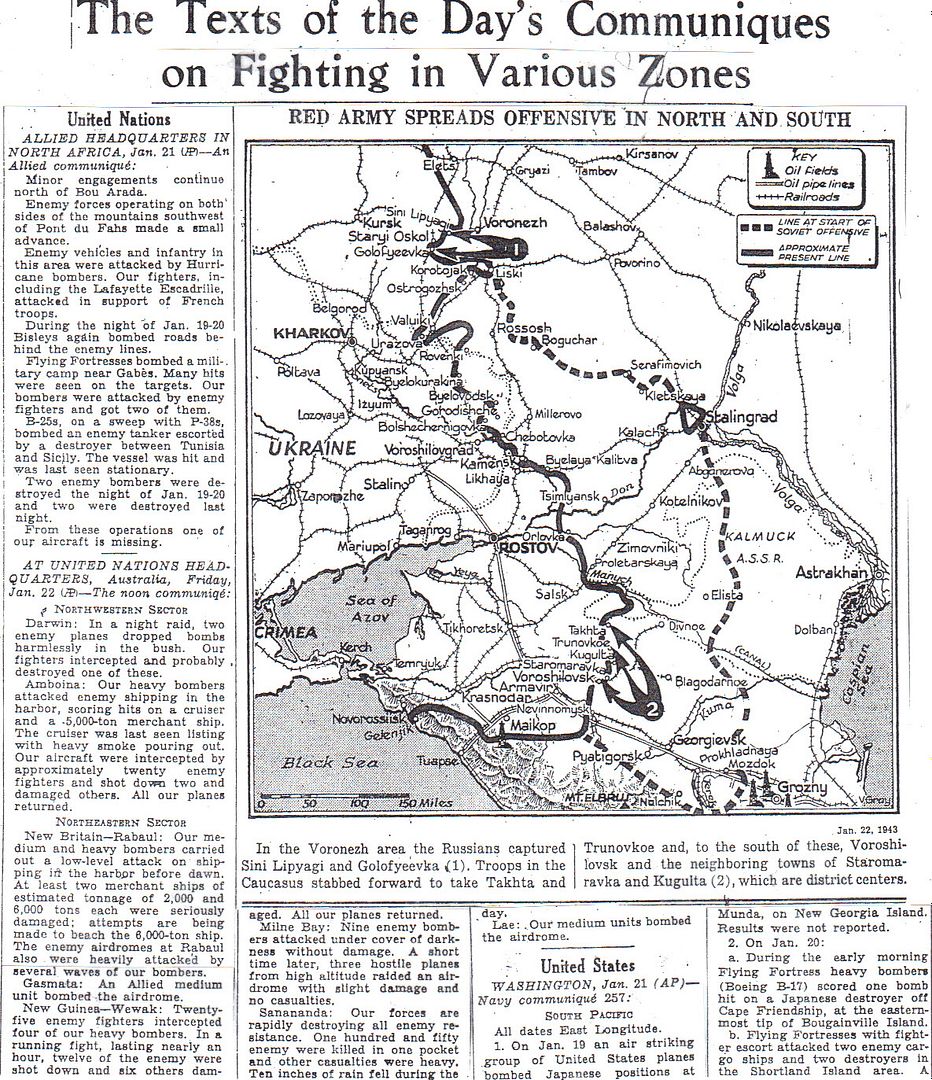
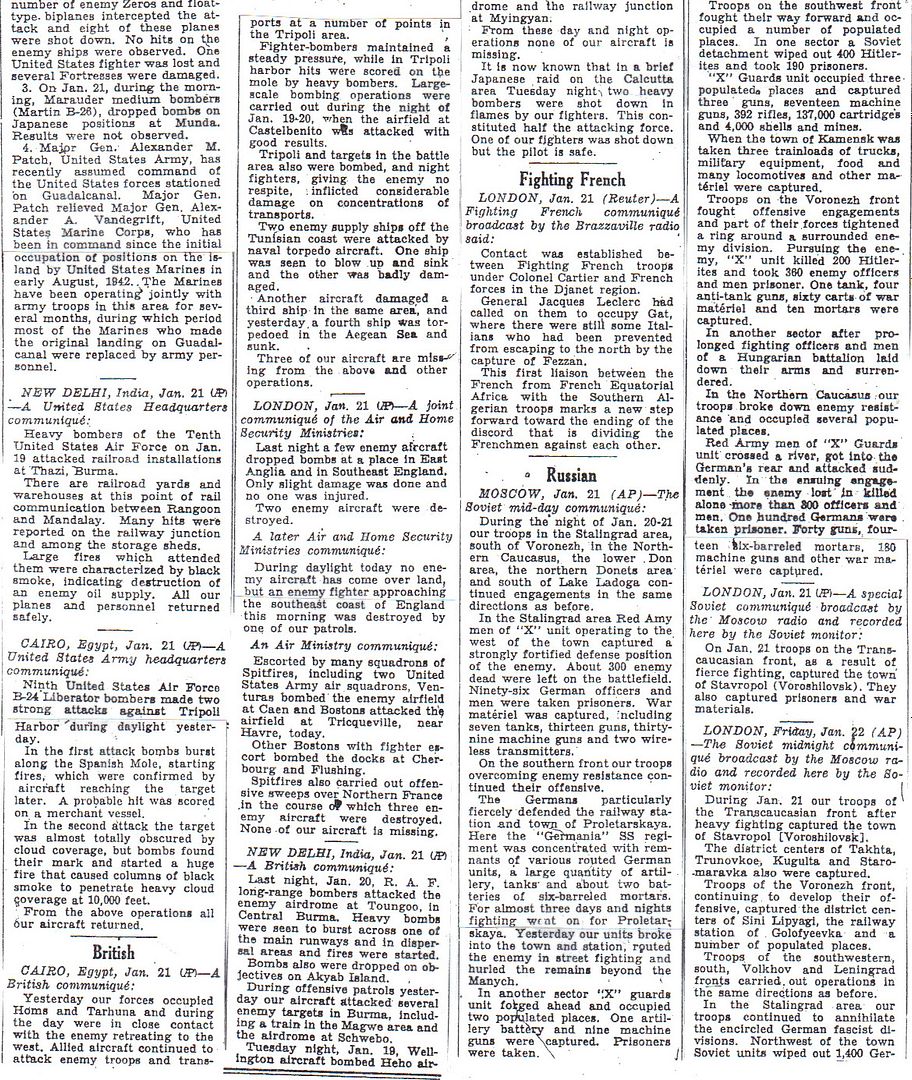
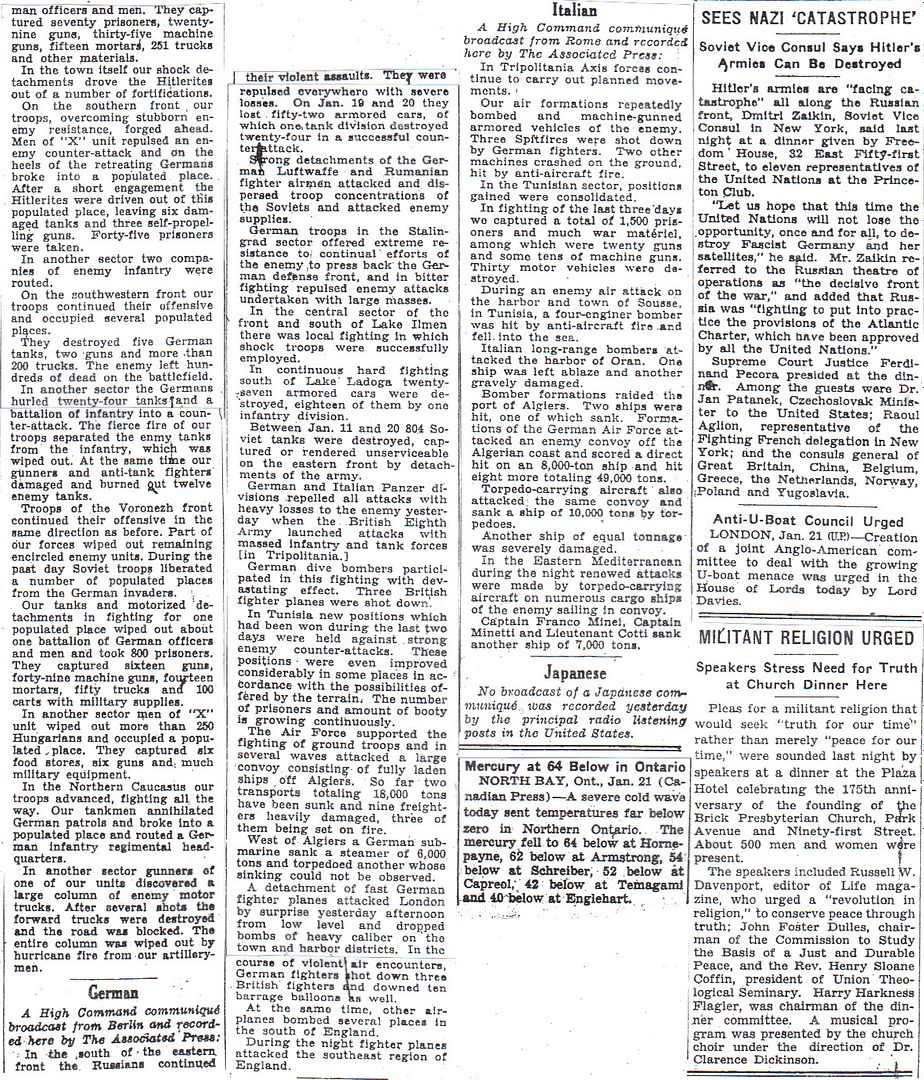
In mid-September, 1942, the Australian idyl came to a grim end. The Japanese tide was within thirty-two miles of Port Moresby. On four hours’ notice, elements of the 128th Infantry prepared to move by air to New Guinea. Light-colored fatigue uniforms were sprayed with green camouflage dye. The men who were to become the heroes of Buna were frankly scared as they flew north – the newly dyed uniforms wet on their backs. On the twenty-eighth of September, these elements of the 128th Infantry took up the left flank of the Allied positions along the Goldie River defending Port Moresby. The division lays proud claim to this commitment as being the first by a United States division in World War II, save for those units which fought against the original Japanese sneak attacks.
The grim business of death had actually begun. In mid-October the second battalion of the 126th Infantry started out to parallel the Kokoda trail across the Owen Stanley Mountains. The men who made that terrible march are still regarded as human curios – those that are left. For forty-two days they climbed and suffered, often cutting their own trail through some of the most awesome country in the world. They threw away everything they didn’t absolutely need – and a lot they did. It was bitter cold amid the 8000-foot peaks.
On the highest point of the trail there stands a simple monument, put there by Pfc Elvin W. Penn, of Muskogee, Oklahoma, to mark the grave of a doughboy who died on the trail to Buna. Penn was one of two medics left behind on the trail with seven sick men and a group of native litter bearers. One patient died. Penn hewed a headstone of solid rock for the grave. He made a cross from newly peeled white limbs of trees. He built a neat wall of stone around the plot. A buddy who passed the spot some weeks later said, “It was the most beautiful grave I ever saw anywhere.”
The second battalion moved down into the dank jungles of Papua, crossing and recrossing the roaring waters of unmapped rivers. Forty-two days after it left Port Moresby, the filthy battalion emerged from the green twilight of the rain forest of Soputa. The long green line snaked single file through the kunai grass. A Jap sniper’s rifle crackled. A man went down. A staff sergeant lifted his tommy gun and sprayed the treetop. The tommy gunner’s name was Herman Botcher. The soldiers looked at him admiringly and began to have confidence in him.
Thus began the hell of Buna. The 127th and 128th Infantry regiments moved by air to bases east of Buna, which is the reason the doughs today will tell you they were the first United States troops to be airborne into combat. Kids who one year before had been playing high-school football learned for the first time the terror of the night perimeter – a terror which was to be with them for a long, long time.
Uniforms, continually wet, rotted on their backs. New shoes rotted off the feet in ten days. The men were covered with festering sores – the jungle rot which has plagued the division ever since. Blankets became fly-blown, green with mold, leaden with rain, and were usually abandoned. Fever – malaria, dengue, typhus – felled men faster than Jap bullets. Dysentery took its toll.
These were the men who went up against 5000 veteran Jap jungle fighters entrenched in what the Army – not given to superlatives – called “superb defense positions.”
“We wrote the book on jungle fighting,” a Buna man said casually. “We learned as we went, and we were up against guys who were supposed to be the best in the world at the business.” The research was nasty. Units of the 126th Infantry went into action on the Sanananda front with 1119 officers and men, and came out with 165.
The Bottcher legend, which will be forever a part of the 32nd, was molded on the steaming morning of December 5, 1942. Staff Sergeant Bottcher led a thirty-one-man platoon forward when all other elements of the attacking force were pinned down by enemy fire. Wading across a creek under constant mortar fire, Bottcher led his men thorough to the beach. He drove a wedge between Buna and Buna village. Botttcher, one eardrum broken by mortar blast, his hand cut by shrapnel, held that wedge. The tide of the battle of Buna turned. Bottcher became a captain. They gave him the Distinguished Service Cross. Three men out of those thirty-one were still with the platoon when it came off the Villa Verde three years later.
By the time Buna was over, on January 22, 1943, a total of 5000 Japs had been killed. This was the entire Jap force in the area. The 32nd’s cost was brutal. The division sent 9825 men into combat and suffered 2620 battle casualties. However, disease took its toll as well; 6336 men were lost due to malaria, dengue, jungle rot and dysentery. The division received the Distinguished Unit Citation from President Roosevelt.
Sick remnants returned to Australia. Word got around that the 32nd was finished, that it would go home. Then Gill, the lean Virginian, came to take over. He told the 32nd in no uncertain terms that it would fight again.
They had had enough, they thought. But they found themselves in the midst of amphibious training, while malaria cases were nursed back to health in rest camps. Replacements arrived. [Including Homer's father, sometime between now and Feb. 4 - HJS.] The 32nd was rebuilt to fight.
http://www.onwar.com/chrono/1943/jan1943/f22jan43.htm
Soviets Begin Final Offensive on Stalingrad
Friday, January 22, 1943 www.onwar.com
On the Eastern Front... The final Red Army offensive against the German 6th Army trapped in Stalingrad begins with a massive artillery barrage followed by infantry attacks. In the Caucasus, Salsk falls to the advance Soviet forces.
In the Solomon Islands... On Guadalcanal, American attacks are renewed. There is progress toward Kokumbona.
In North Africa... Axis forces abandon Tripoli after evacuating large quantities of supplies and destroying port installations.
In New Guinea... The last Japanese troops are eliminated from Papua. The Japanese have suffered about 7000 killed during the campaign, the Allies about 3500.
In Morocco... The Casablanca Conference. The Anglo-American strategy discussions continue.
http://homepage.ntlworld.com/andrew.etherington/frame.htm
January 22nd, 1943
UNITED KINGDOM: The first North American B-25 ‘Mitchell’ light bombers in the service of the RAF make their operational debut today in an attack on oil refineries in Belgium, flying from Foulsham, Norfolk. (22)
Submarine HMS Varne launched. (Dave Shirlaw)
GERMANY: Rastenburg: Hitler orders that tank production must take priority over shipbuilding.
U-775 laid down. (Dave Shirlaw)
U.S.S.R.: The Red Army begins its final attacks at Stalingrad.
The Luftwaffe airbase at Salsk, in the Caucasus, falls.
The Italian Alpini divisions, Julia and “Cuneense” clash with Soviet forces at Novo-Georgievka and Valuiki. (Francesco Dall’Aglio)
NEW GUINEA: Papua is cleared of Japanese troops.
SOLOMON ISLANDS: Since the request on January 12 for tank support to suppress the “Gifu” on Guadalcanal, engineers have been scratching out a road for them. Of 3 tanks inherited from the Marines, now manned by the 25th Div. Reconnaissance Squadron, only one reaches the area in operational condition. Commanded by Capt. Ted Deese the attack begins at 10:30 am. He makes two penetrations destroying 8 pillboxes and breaching a gap of almost 200 yards. This gap allows the 2nd Btn to occupy a new line inside the outer rim of pillboxes.
CANADA: Tug HMCS Glenora laid down Owen Sound, Ontario. (Dave Shirlaw)
U.S.A.: Submarine USS Archerfish laid down. (Dave Shirlaw)
ATLANTIC OCEAN: Leutnant zur See Wilhem Deutsch of was lost by washing overboard. (When U-268 was sunk four weeks later only 44 men were killed, instead of the normally reported figure of 45 men)
SS Neva sunk by U-358 at 61.35N, 14.15W - Grid AE 8575
At 2351 hours the Mount Mycale, a straggler from Convoy SC-117, is torpedoed by U-413 and sunk by a coup de grâce at 2356.
"Krupp was among the many German corporations to make extensive use of the abundant supply of slave labor that the concentration-camp system provided.
This airplane factory in Essen was just one of several major Krupp plants located throughout the Reich and the occupied territories.
In September 1944 Krupp employed around 288,000 workers.
During the Nuremberg Trials, the Allies accused Alfred Krupp, chief of the corporation, of profiting from the work of approximately 100,000 slaves, probably an underestimation."
"Huddling in small groups, Jews from Novo Moskovsk in the Ukraine are deported.
Some 400 Jews from this town were transported to the death camps of Poland in spite of the Wehrmacht's protests that trains were more urgently required for military purposes.
Although the harsh winter weather halted the transports, they began again in mid-January 1943."
That air crash in South America might have been part the the spy war that was being waged there during WWII. from wikipedia “In 1943, at which time he was a major in the United States Army – Special Services, Knight was killed in an air crash in Dutch Guiana (now Surinam) in South America”.
I am skeptical that AA fire from a submarine would bring down a plane flying at high altitude.
From the link:
"Worst Air Disaster Kills 35" - NY Times Headlines Jan.22, 1943
Must be some other NY Times.
Word of the tragic crash was kept secret until FDR was safely back from the Casablanca Conference a week later.
The conference didn't end until two days after the story was in the news. FDR stopped in Brazil and the West Indies and didn't get back to Washington until at least Jan. 31.
Disclaimer: Opinions posted on Free Republic are those of the individual posters and do not necessarily represent the opinion of Free Republic or its management. All materials posted herein are protected by copyright law and the exemption for fair use of copyrighted works.